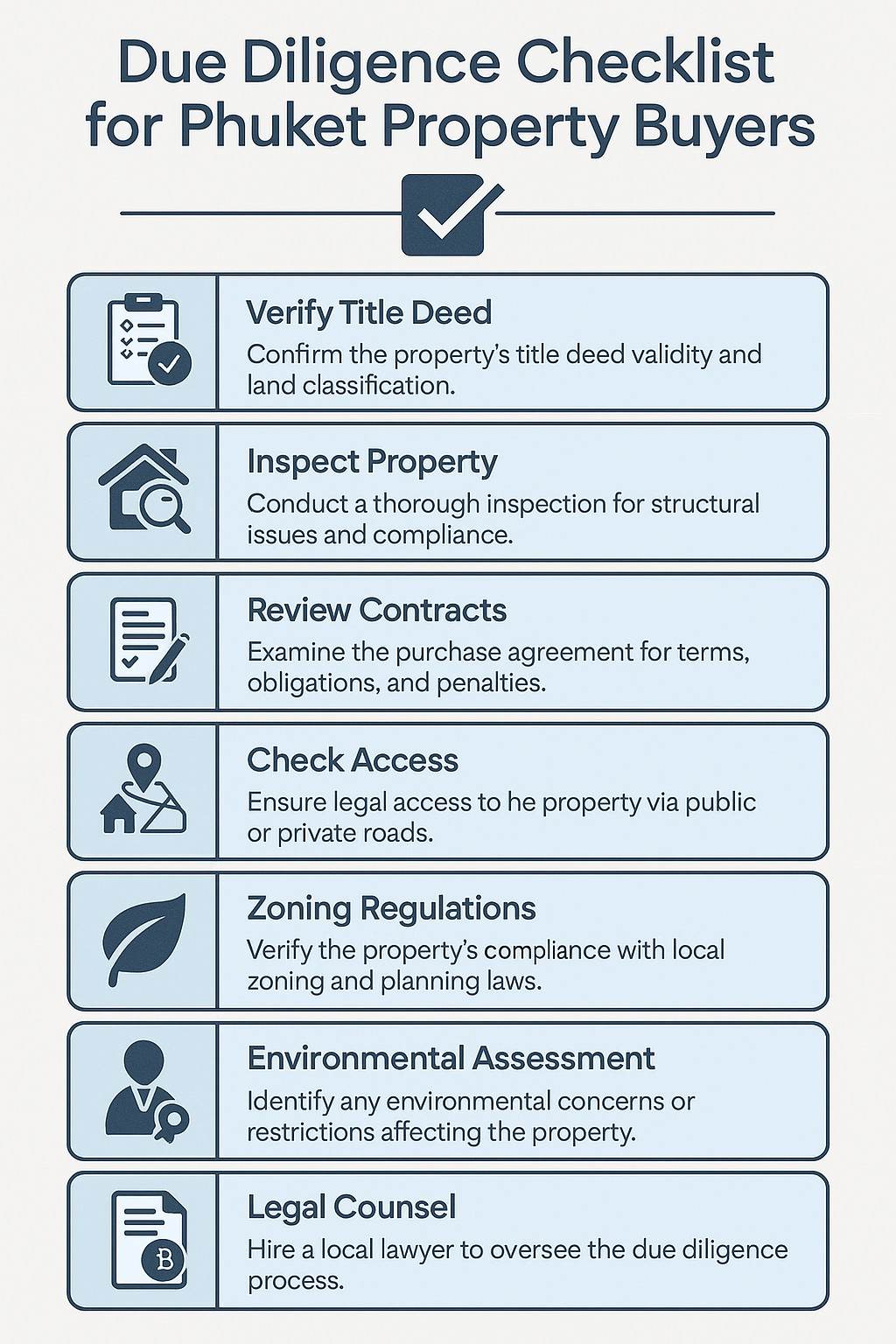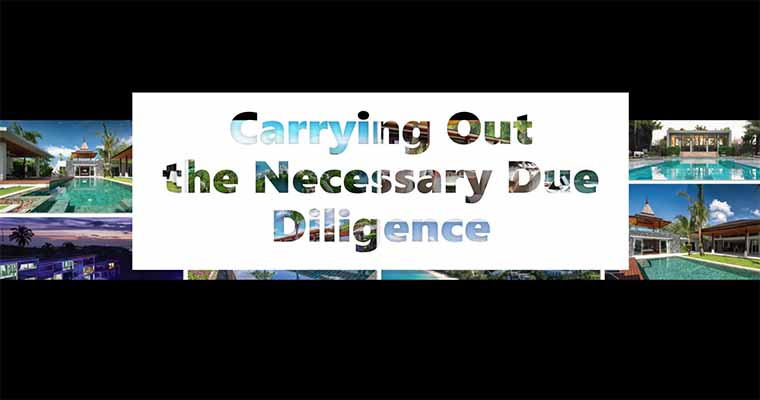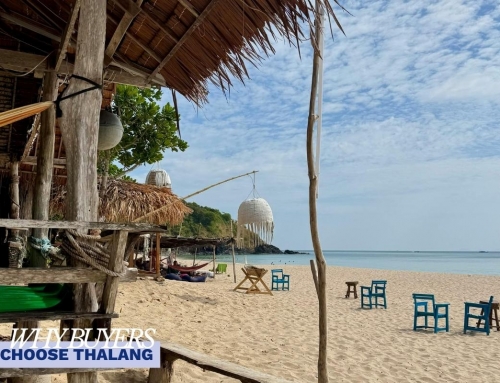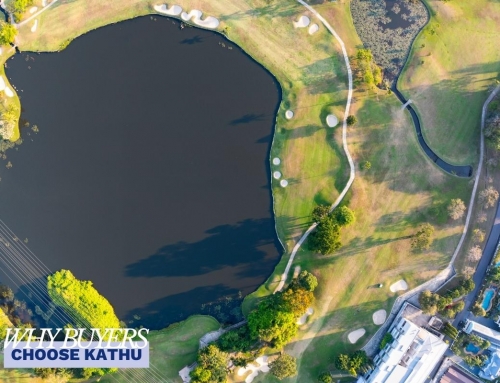If you’re planning to buy property in Phuket, understanding the process of due diligence is essential. Real estate transactions in Thailand can differ from those in Western countries, and overlooking basic legal checks can result in serious consequences.
From verifying land titles to reviewing zoning laws and building permits, a thorough investigation protects your investment and ensures a smooth transfer of ownership.
What Is Due Diligence in Real Estate?
In real estate, due diligence is the process of verifying the legal and physical status of the property before completing the purchase. It’s a safeguard that identifies potential risks and ensures the buyer is fully informed.
In Phuket, this includes:
- Land title deed verification
- Zoning and environmental restrictions
- Building permits and construction approvals
- Company ownership structures (if applicable)
- Condominium quotas for foreign ownership
Skipping any of these steps can result in buying a property that may be illegal to own or build upon.
Why You Should Use a Lawyer
While some buyers are tempted to go it alone or rely solely on agents or developers, this is a risky approach. A qualified Thai property lawyer can:
- Check the title deed for encumbrances or mortgages
- Confirm if the seller legally owns the land
- Investigate any pending legal disputes
- Draft and review the sales agreement
- Guide you through the transfer process at the Land Office
It’s a small investment for peace of mind and legal protection.
Land Titles and Zoning in Phuket
Understanding land titles is particularly important in Phuket. Titles range from full ownership (Chanote) to lower forms like Nor Sor 3 Gor. Only certain types are safe for buying or building.
Zoning laws in Phuket can also restrict building heights, density, and proximity to the shoreline. Due diligence ensures the land is compliant with local planning regulations.
Structural and Environmental Checks
Before buying, it’s also advisable to:
- Inspect the property for construction quality and drainage
- Check for flooding risks or water shortages
- Confirm access roads are registered and not on private land
Professional surveys or engineer inspections can add another layer of protection.
FAQs – Due Diligence When Buying Property in Phuket
What is due diligence when buying property in Phuket?
It’s the legal and physical verification process to ensure the property is safe and legal to buy.
Do I need a lawyer to conduct due diligence in Thailand?
Yes. A Thai lawyer will verify ownership, land titles, building permits, and draft contracts.
What are the most common problems found during due diligence?
Incorrect title deeds, zoning violations, unregistered access roads, and missing permits.
Is due diligence different for condos and land/villas?
Yes. Condos involve checking the foreign ownership quota and juristic person; land or villas require deeper title and zoning checks.
How long does due diligence take?
Usually 1–3 weeks depending on property complexity and document availability.

Real-Life Due Diligence Failures in Phuket: What We’ve Seen Firsthand
Over the years, Thai Residential has encountered numerous properties that failed due diligence checks. These are not rare cases – they are warnings that every serious buyer should pay attention to:
🔺 Zoning and Height Restrictions Violated
One beachfront condo project looked promising on paper but was being built in a red-zoned coastal area, violating height restrictions. Had the buyer proceeded, it’s likely the structure would have been ordered to halt or be demolished.
🔺 Illegal Land Titles
We’ve reviewed projects claiming to hold a full Chanote title, only to discover the land was actually Nor Sor 3 Kor, which cannot legally be subdivided or sold to foreigners. This is a common trap that can result in the buyer losing their entire investment.
🔺 Nominee Shareholder Setups
Some foreign buyers were advised to use Thai “nominees” to set up a company for land ownership. These setups are illegal under Thai law, and the land can be seized if uncovered. We’ve helped clients back out of these risky schemes before it was too late.
🔺 No Legal Access to the Land
One stunning hillside villa appeared to be a dream home — until we discovered it had no legal road access. There was no registered servitude or public road connection, meaning the owner would be landlocked and legally unable to access the property.
Conclusion: Protecting Your Investment in Phuket
Due diligence is not just a box-ticking exercise – it’s an essential part of securing your property investment in Phuket. With the right legal team and a structured approach, you can avoid unnecessary risks and buy with confidence.
If you want to learn more about buying property in Phuket safely, you can read our Thai Residential Phuket Property Guide.
Other Helpful Resources:
- Land Titles in Thailand – What Buyers Should Know
- Making a Will in Phuket
- Buying a Condominium in Phuket – A Complete Guide
- Understanding the Importance of Due Diligence and Exactly What Due Diligence is When Buying Real Estate in Phuket
- The Importance of Sound Legal Advice When Buying Property in Phuket





Social Contact